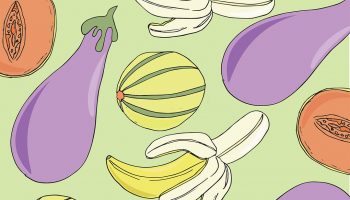How Queer oppression is more than the fight for marriage equality
Recognition of love and long-term monogamous unions is something for everyone to feel passionate about. While marriage equality is often seen as the pinnacle of Queer people’s oppression, it is not the only measure.
Widespread homelessness of our youth, suicide rates, bullying and harassment and subsequent mental health issues should also inform the discourse. These are far more difficult problems to solve; they are structural and lack the leftist self-gratification that support for marriage equality provides.
Feeling Queer and Blue, a literature review commissioned by Beyond Blue and completed by ARCHS in late 2008, identifies higher rates of mental health issues, victimisation, homelessness, alcohol and substance abuse issues as well as engaging in suicidal behaviour or non-suicidal self-harm among queer identifying young people. LGB youth are two to tree times more likely to attempt suicide and the rates are much higher for trans* identified individuals. Out of the 19,000 youth who are homeless on any given night, over 25% of them are queer identified.
These statistics do not exist in a vacuum; they reflect the difficulty of negotiating a world not built for young queer people. A world rendered from heteronormative assumptions and built on the foundations of a history riddled with queerphobic violence and oppression. We are kicked out of home when we come out to our families, we are harassed on the street for holding hands and we have our gender policed in bathrooms. We grow up without positive role models and our identities are fetishized and normalised for mass consumption.
This is why the MSA Queer Department exists, and this is why it needs to continue to exist even if one day ‘gay’ people have the rights to marry their partners, even if you have queer friends who you accept and even if you, as a queer person, have not experienced what I described above. Oppression is not always overt and identifiable – it’s insidious, it creeps into everyday language, assumptions about sexuality and gender and ignorance of the privilege that is carried as white, cisgender, middle-class or non-queer identified people.
The department exists to combat these problems, albeit, within its severely limited, overworked, underfunded capacity. We provide a community, a voice and support system – all aspects that are lacking from many queer young people’s lives. Indeed, As Feeling Queer and Blue outlines, rejection from family or friends in regards to disclosure of sexuality and/or gender and a lacking of traditional support networks for young queer people which creates the environment in which many of these issues begin. As is outlined in Don’t Ask, Don’t Tell: the need for documenting links between sexuality and suicidal behaviour among young people concerning statistics do not stem from “the nature of their sexual or gender diversity” but from the “experience of living in a world that pathologises sexual expression and consequently marginalises them through all the institutions that are important in the lives of young people.”
These statistics and the reality of working in a community organising role aimed at catering to the needs of queer youth highlights the necessity of maintaining services and spaces that advocate and support them. Studies show that “social support from peers, friends and family” as well “community support” can both provide “robust protective factor against depressive symptoms”, especially in the case of queer identified youth whose normal support system are often ruptured or impaired due to homophobic or unwelcome responses to ‘coming out’. The Queer Department, the two Queer Officers who run the department and the autonomous lounge that we maintain, are all integral to the small, but important network we provide.I have been involved in the department for nearly five years, and in that period I have experienced and seen my closest friends experience the caustic lows and euphoric highs that characterises the transition from fresh-faced jaffy to cynical undergrad. I have seen the social benefit that a community of queer identified people can provide a rural teenager who has just come out to themselves for the first time. Or the way the Queer Department, through advocacy and support, has provided a flimsy barrier between an individual considering suicide, or an alternative. The benefits are also practical, with many students who use the space finding housemates or housing within the community, and through on and off-campus activism we fight and organise around an ideal of a kinder world.
The Queer Department is an imperfect buffer on an imperfect timeline of queer activism; it has been afflicted by its own political divisions and internal hiccups. It does not claim to be the solution to all problems, but it is a helping hand. Just like we should not look to marriage equality as the zenith of political redemption – we need to understand the ongoing realities and difficulties queer youth face, and the difficulties we face in helping them.
Cam Peter is Female Queer Officer for the Monash Student Association. They can be contacted through msa-queer@monash.edu or on 9905 0554. Queer week is taking place in Week 7 (22nd-26th) of April and includes workshops, social events and activist campaigns – topped off with the infamous Queer Ball on Friday, the 26th of April at Sir John’s Bar. For a full list of events, check out our facebook page at http://www.facebook.com/MSAQu
Image: Jared Smith


